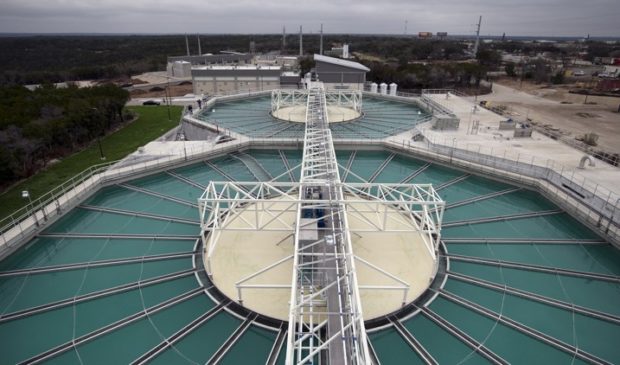Austin Water to discuss progress on improvement plan today
Wednesday, March 29, 2023 by
Jo Clifton In the wake of five troubling incidents between 2018 and 2022, which led the former director of Austin Water to resign, the utility’s current leaders have been working to complete changes intended to prevent future service disruptions, such as boil-water notices.
Of the city’s three water treatment plants – Ullrich, Handcox and Davis – Ullrich is the one identified as having the most organizational and technical problems. As a result, that plant and its staff have drawn the most attention.
Following the resignation of Director Greg Meszaros, former City Manager Spencer Cronk appointed Shay Ralls Roalson to lead the utility. Subsequently, City Auditor Corrie Stokes hired the University of Texas Center for Water and the Environment at the direction of City Council to look at the utility’s management and technical problems, with the goal of coming up with solutions.
Roalson and her staff will be detailing their progress in implementing recommendations from that effort during a joint meeting of the Audit and Finance Committee and Council’s Austin Water Oversight Committee at 1:30 p.m. today.
Council Member Leslie Pool, chair of the water utility committee, told the Austin Monitor on Tuesday that she was pleased with the utility’s progress. Given the importance of the utility, she said, “I’m glad to see that about 70 percent of the recommendations are either complete or underway.” She said she was looking forward to the meeting.
According to a written summary of the work, the utility has completed 26 percent of recommendations made by the UT group, and another 43 percent are in progress. Included among the completed tasks are improvements in employee and leadership development, emergency management, operations and engineering, public information, and standard operating procedures and training.
The report emphasized the need for hiring additional qualified staff and paying them more than the entry-level salary. Recently, the utility reported a 30 percent vacancy rate but said it is “currently posting openings at multiple levels to allow hiring above the entry level.”
The UT report emphasized the need to examine the risks of more frequent and intense storms and to keep up with preventive maintenance. Austin Water’s response says that the utility is using IDIQ (indefinite delivery/indefinite quantity) contracts in order to supplement staff efforts to address maintenance backlogs.
In addition, design of a new centrifuge for the Ullrich plant is in the works, and City Council recently approved a five-year contract for centrifuge repair. Ullrich, of course, is the plant that has caused the most problems for the city.
In addition to the items that are completed or underway, the utility said it has plans to begin work on another 23 percent, or 12 more of the recommendations from the UT group. They include testing Ullrich production capacities at higher levels later this year and updating standard operating procedures based on the results of those tests. Austin Water is also evaluating a number of technical changes to its procedures.
The utility is planning to review its oil spill response plan as well and update it when necessary. But there are additional problems to fix, such as the recent break in a water line that killed fish in Shoal Creek.
Austin Water officials indicated that they did not agree with four recommendations from the UT group, including having Austin Water report directly to the city manager and establishing greater autonomy for Austin Water’s Human Resources group to define job requirements and qualifications.
Interim City Manager Jesús Garza recently reorganized numerous city departments. Under the new organization, Austin Water, along with Transportation, Public Works, Watershed Protection and Aviation, report to interim Assistant City Manager Robert Goode.
Pool said she agreed with Garza’s decision not to have Austin Water directly report to him but to instead be part of the group reporting directly to Goode.
The Austin Monitor’s work is made possible by donations from the community. Though our reporting covers donors from time to time, we are careful to keep business and editorial efforts separate while maintaining transparency. A complete list of donors is available here, and our code of ethics is explained here.
You're a community leader
And we’re honored you look to us for serious, in-depth news. You know a strong community needs local and dedicated watchdog reporting. We’re here for you and that won’t change. Now will you take the powerful next step and support our nonprofit news organization?






